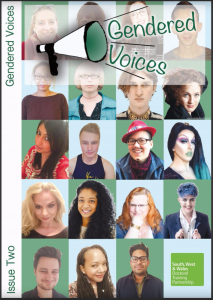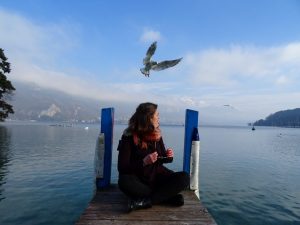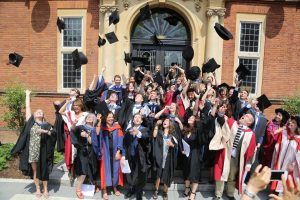 As an academic working on Cuban culture since 1959 https://www.reading.ac.uk/modern-languages-and-european-studies/stories/mles-story-kumaraswami.aspx , and as a lifelong supporter of Manchester City, imagine my delight at being invited to speak at an event which featured Manchester City’s manager, Pep Guardiola? Huge thanks to Dr Diana Cullell, Professor Claire Taylor and Professor Chris Harris for the invitation!
As an academic working on Cuban culture since 1959 https://www.reading.ac.uk/modern-languages-and-european-studies/stories/mles-story-kumaraswami.aspx , and as a lifelong supporter of Manchester City, imagine my delight at being invited to speak at an event which featured Manchester City’s manager, Pep Guardiola? Huge thanks to Dr Diana Cullell, Professor Claire Taylor and Professor Chris Harris for the invitation!
And so, on 21 November 2018, I travelled to the University of Liverpool and listened to Pep talk about the importance of travel, learning languages, engaging with other cultures, recent political events in Catalunya and, of course, about his work as one of the world’s most successful football managers. The video of his talk is available here: https://www.liverpool.ac.uk/modern-languages-and-cultures/events/pep-live/
Following his talk, I gave my own paper, a mixture of personal experience and research reflexions. This was possibly the easiest academic paper I have prepared in my life (based on so many conversations with family and friends), and certainly the most fun to deliver (sound recording to be added soon). Here’s a summary of the main argument:
The twelfth man? Some unlikely connections between Manchester City and Revolutionary Cuba
I frequently experience reactions of curiosity and surprise. These reactions are rarely articulated but they seem to be born of certain assumptions, to follow a certain orthodoxy. Why continue to work with such dedication on a context where writers and artists are denied freedom of expression and have to distort their ideas and work to fit political and ideological prescriptions? Why continue to support a football team and club which have lost touch with the grassroots, and which are fuelled and sponsored by unlimited reserves of Middle Eastern oil money?
 This paper aims to question those reactions, to interrogate assumptions about Cuba and about football, and to propose a more nuanced understanding of both. It is based on much reading and writing https://www.jstor.org/stable/j.ctt1vwmdc2 ; https://www.palgrave.com/gp/book/9781137569639 and on abundant participant observation on the terraces and in Cuba https://www.leverhulme.ac.uk/research-project-grants-2014.
This paper aims to question those reactions, to interrogate assumptions about Cuba and about football, and to propose a more nuanced understanding of both. It is based on much reading and writing https://www.jstor.org/stable/j.ctt1vwmdc2 ; https://www.palgrave.com/gp/book/9781137569639 and on abundant participant observation on the terraces and in Cuba https://www.leverhulme.ac.uk/research-project-grants-2014.
So, the essential question is how to understand two cultural contexts which, in my view, have been over-determined politically and economically https://www.theguardian.com/world/2018/apr/19/cuba-president-miguel-diaz-canel-modernise-economy ; https://www.theguardian.com/commentisfree/2017/dec/24/who-pays-for-manchester-city-beautiful-game . What these two approaches fail to notice, and what my work on cultural participation in post-1959 Cuba emphasises, is the importance of culture – as both everyday practice and artistic representation – in providing the glue that binds societies and social groups.
Let’s start with Cuba: whilst many scholars and commentators focus on periods of crisis for writers and artists, often related to the ‘Sovietisation’ of culture in the 1970s, they fail to notice the other discourses and policies that have provided a direction for Cuban cultural policy since the revolutionary government came to power, and, crucially, the continuity that has characterised those policies over 60 years: that is, a commitment to investing in culture, a sustained attempt to ‘change the rules of the game’ in order that elite forms such as literature become massified practices, and, of course, the creation of an infrastructure for publishing and he socialisation of literary culture. These ideas were crystallised in a series of speeches by Fidel Castro, the ‘Palabras a los intelectuales’/Words to the intellectuals’ of 1961 http://lanic.utexas.edu/project/castro/db/1961/19610630.html;https://onlinelibrary.wiley.com/doi/abs/10.1111/j.1470-9856.2009.00315.x . One of the key examples here is the Feria Internacional del Libro de la Habana (FILH)/Havana International Book Festival, and its massification and diversification in the 2000s. At its height in 2006, and bearing in mind that Cuba has a population of around 11.5 million, the FILH attracted 5 million people and sold 5 million books across the island’s territory https://www.researchgate.net/publication/292324130_The_feria_del_libro_and_the_ritualization_of_cultural_belonging_in_Havana . Yet some Cuban writers complained at the time that the massification of the FILH diluted or trivialised the serious work of producing and consuming literature.
A more recent example is from the provincial iteration of the FILH in 2014. At a poetry reading organised in the central square of Bayamo, the capital of Cuba’s eastern Granma province, the organiser of the reading complained that it was being interrupted by the public shouting to friends, generally enjoying the fair-like atmosphere rather than paying attention to the poetry being recited. The organiser felt that this demonstrated ‘una falta de respeto’/’a lack of respect’, whilst I argued back vigorously that in fact it showed the opposite: the sense of entitlement to occupy public spaces for culture produced in Cubans of all walks of life by decades of government and public investment in cultural access and participation. What emerges from initiatives such as the FILH is the notion that elite and mass/popular cultures are compatible, mutually constitutive and reciprocally beneficial, that they create a particularly effective model for cultural prestige; furthermore, that collective participation also creates a sense of well-being in providing spaces, opportunities and practices that bind individuals loosely, in ways which allow them to feel a sense of both identification and self-differentiation. The local and physical aspects of that participation are key.
 What does all this mean for Cuba and for football? The fact that two levels of activity, each with functions that are infused with cognitive, moral, affective and corporeal components, can come together in a public and collective space, means that the public – whether at a book reading in Cuba or a football match at the Etihad stadium – enjoy the opportunity to feel, believe, represent and perform identities which are vital to our sense of belonging and well-being. As long as they are harmonised with top-down policies, these interactions nourish social integration: in my experience, the football terraces are the only place in contemporary English society where people of all ages, genders, classes and cultural heritages come together to inhabit the same space as a collective.
What does all this mean for Cuba and for football? The fact that two levels of activity, each with functions that are infused with cognitive, moral, affective and corporeal components, can come together in a public and collective space, means that the public – whether at a book reading in Cuba or a football match at the Etihad stadium – enjoy the opportunity to feel, believe, represent and perform identities which are vital to our sense of belonging and well-being. As long as they are harmonised with top-down policies, these interactions nourish social integration: in my experience, the football terraces are the only place in contemporary English society where people of all ages, genders, classes and cultural heritages come together to inhabit the same space as a collective.
Quite simply, cultural participation, whether at a book festival or a football match – especially at times of rapid socio-cultural and political change – can be the twelfth man.
Dr Par Kumaraswami, Spanish Section, Department of Modern Languages and European Studies, University of Reading





















